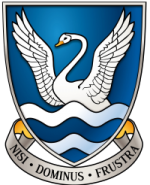 Drama
Drama
Aims
This specification aims to encourage students to:
- develop a personal interest in drama and be motivated and inspired by a broad and coherent course of study.
- engage actively in studying drama so they develop as effective and independent learners and as critical and reflective thinkers with enquiring minds.
- work imaginatively and creatively in collaborative contexts, generating, developing and communicating ideas.
- analyse and evaluate their own work and the work of others.
- develop and demonstrate competence in a range of practical, creative and performance skills.
- develop skills that provide a basis for progression to employment or further study.
- consider and explore the impact of social, historical and cultural influences on drama texts and activities.
Staffing
Mrs Graham (Teacher in Charge)
Mrs Ace
Mr Caddell
Subject Overview
Through drama you can become anyone, anywhere, at any time. By understanding Drama you can learn to understand anyone, anywhere any time. Drama gives our pupils the opportunity to develop their Improvisation skills. Improvisation is the spontaneous response to new and unexpected situations. Life is improvisation. Drama helps our pupils to respond in new ways when spontaneous and unexpected things occur to them.
In Drama pupils participate in group work. This helps them to explore relationships on and off stage. It helps them to improve their communication skills and to make friends.
Studying Drama has a lot of personal benefits for our pupils. It helps with building self-confidence, speaking in public, and developing interpersonal skills. It helps them to be more aware of how their physical presentation can affect the way people see them.
Key Stage 3
In Junior School, Drama is taught in units and is delivered by their English subject teacher. Each pupil has the opportunity to develop different acting skills through carefully designed tasks. They participate in a range of activities including both writing and performing their own scripts.
Key Stage 4
Drama is a popular choice at GCSE. There are 2 classes and girls follow the CCEA specification which is taught in 5 periods each week. Pupils have the opportunity to experience a variety of drama forms:
- Acting
- Improvisation
- Dance drama
- Mime
- Devising
- Directing
- Design
Assessment
- Practical Controlled Assessment (60%)
- Devised performance and portfolio, stimulus materials set by CCEA (25%)
- Scripted performance and portfolio (35%)
- Final written examination (40%)
Click here to go to the CCEA Key Stage 4 Revised Drama Specification.
Key Stage 5
At A-level, pupils follow the Edexcel Specification for Drama & Theatre Studies. This is a linear, two-year course, comprised of three components:
- Component 1: Coursework: Devising (40%)
- Component 2: Coursework: Text in Performance (20%)
- Component 3: Written examination: Theatre Makers in Practice (40%)
http://qualifications.pearson.com/en/qualifications/edexcel-a-levels/drama-and-theatre-studies-2008.html
Career Opportunities
A-level Drama and Theatre Studies is useful for students considering Higher Education in any arts or humanities subject including English Language and Literature, Journalism, Dance, Music, Art and Design, and Media Studies.
Career opportunities for students who study A-level Drama and Theatre Studies include: Arts/theatre administration, arts journalism, director, actor, designer, playwright, stage management, sound engineer, theatre management, theatrical agent, technician, broadcasting, media presenting, education, drama therapy and scriptwriting.




